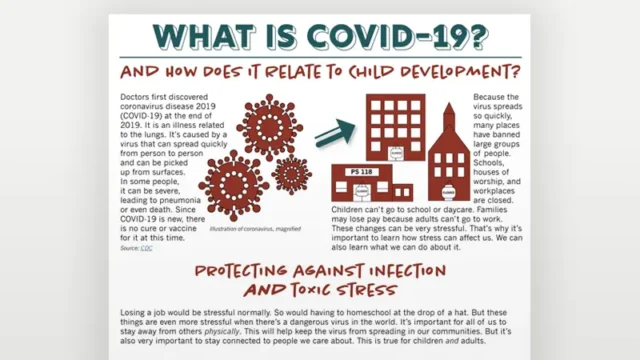What Is COVID-19? And How Does It Relate to Child Development?

This page has been translated.
You’ve almost certainly heard of COVID-19 at this point. In fact, your life is probably very different than it was before the outbreak. You may be one of the billions of people around the world being asked to stay home to prevent the spread of the coronavirus that causes COVID-19. These stay-at-home orders mean children can’t go to school or childcare, and some adults are not able to work, thus losing income.
It’s a stressful time for everyone, worldwide, but in the midst of it all, children’s development doesn’t hit the pause button. They continue to learn and grow, and there are still easy and free activities parents and caregivers can provide for their children, in spite of a situation that can feel frightening and overwhelming.
This infographic explains the basics of what COVID-19 is, and what it can mean for stress levels in both children and the adults who care for them. It also offers some easy and concrete solutions to help caregivers ensure that both they and the children they care for don’t experience long-term effects of stress. Finally, it explains how all of us as a society can work to ensure the health and wellbeing of all our fellow community members, both now and in the future.